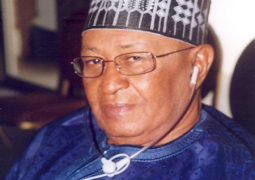They sometimes claimed that a jenie or a devil were descending upon him as devils and jennies descended upon diviners and soothsayers, so Allah responded their allegations by the verses reading:
Shall I inform you upon whom the devils descend?” they descend upon every sinful liar. (Ash-Shu’araa: 221-222)
They mean that these devils and jinn descend upon but wicked and sinful liars. But you know that i am not a liar or transgressor. So how can you allege that the Quran is sent down by devils?
In other cases they claimed that the Prophet (PBUH) was afflicted with a type of madness, through which he imagines meanings and phrases them in a wonderful and impressive way as poets do. He is a poet and his words are poetical expressions. As a refutation of their allegations, Allah says in the Quran:
And the poets- [only] the deviators follow them. Do you not see that in every valley they roam? And that they say what they do not do? Ash-Shu’araa: 224-226
There are the three basic characteristics of poets, but the Prophet (BPUH) has nothing to do them in any way; those who followed him are rightly guided, righteous well-mannered, Moderate and straightforward on one hand. On the other, the Prophet (PBUH) never indulged in every aspect as poets do, rather, he invites to the worship of One God, one religion and one path. Moreover, he does practice what he preaches. So in any way can he be compared to poets? Or how can poetry are connected with him?
Thus Allah refutes their allegations by convincing and irrefutable responses on every doubt they arouse against the Prophet, the Quran or Islam. Most of their uncertainties revolved around monotheism, the Message of Muhammad, raising the dead and gathering them on the Day of Final Judgment. The Quran responded to their doubts very clearly and circumstantially, on the issue of monotheism and exposed the Shameful incapacity of their alleged gods. This was the fact that evoked their anger and condemnation.
Despite their acknowledgement of the Prophet’s honesty, truthfulness and piety, they thought that the position of Prophethood is greater than being grated to a human. They believed that a human could never be a Messenger. So when the Prophet (PBUH) reclaimed his Prophethood and called upon people to believe him, they became undecided and astonished saying:
And they say, “What is this messenger that eats food and walks in the markets? (Al-Furqan: 7)
They also said: “Muhammad is a human and Allah did not reveal to a human being anything. (Al-An’am: 91)
Allah responded to them by the verse that reads: Say, “Who revealed the Scripture that Moses brought as light and guidance to the people? (Al-An’am 91)
They knew and admitted that Moses was a human and prophet. Each people said to their Messengers denying the Prophethood of their Prophets:
They said, “You are not but men like us. (Ibrahim: 10)
Their messengers said to them, “We are only men like you, but Allah confers favour upon whom He wills of His servants. (Ibrahim: 11)
Thus Prophets and Messengers can be but humans as there is no contradiction between humanity and Prophethood.
Acknowledging that Abraham, Ishmael and Moses were humans and Prophets, they had no room for insisting on their doubt. Thus they said: “Didn’t Allah find other than this poor orphan person to convey His Message? Allah shouldn’t have left out the notables of Mecca and At-Taef and taken this orphan as a Messenger.”
And they said, “Why was this Quran not sent down upon a great man from [one of] the two cities? (Az-Zukhruf: 32)
This means that revelation and Message are a mercy from Allah.
Allah says: Allah is most knowing of where [i.e., with whom] He places His message. (Al-An’am 124)
Polytheists moved to another suspicion. They said: “The messengers of kings are accompanied by processions and servants and enjoy grandeur and material comforts. As for Muhammad, he goes to markets to earn his living through trade and claims that he is Allah’s Messenger”. In this respect Allah says:
Why was there not sent down to him an angle so he would be with him a Warner? Or [why is not] a treasure presented to him [from heaven], or does he [not] have a garden from which he eats?” And the wrongdoers say, “You follow not but a man affected by magic. (Al-Furqan: 7-8)
Allah responded to their doubt by stating that Muhammad is Allah’s Messenger, that is, his mission is to convey the Message of Allah to the young, old, weak, strong, great, humble, free people and slaves. If he is immersed in material comforts and dissipation like the messengers of kings, the weak and humble people, the majority of humans, will not be able to get access to him to benefit from him. In this case the desired interest of Message will be valueless and it will have no significant benefit.
They rationally pulled out the possibility of resurrection that comes after death. They found it paranormal and impossible. They used to say:
When we have died and become dust and bones, are we in deed to be resurrected?” and our forefathers [as well]? (As-Saffat: 16-17)
That is a distant [i.e., unlikely] return. (Qaf: 3)
Shall we direct you to a man who will inform you [that] when you have disintegrated in complete disintegration, you will [then] be [recreated] in a new creation? Has he invented about Allah a lie or is there him madness? (Sabaa 7-8)
Allah responded to their misconceptions by attraction their attention to what happens in this material world. The oppressor dies without receiving his punishment; the oppressed die without restoring their rights form the oppressors or retaliating them. Righteous and good people die without being rewarded for their good deeds in this life; transgressors and wicked people die without being punished for their wrongdoings; if there is no resurrection, life or reward after death, all people, good and bad, oppressors or oppressed, will be equal. Rather, transgressors and wrongdoers will be happier then the good and oppressed. But this is completely unreasonable. It is by no means unimaginable and impossible that Allah bases the system of His creatures on such unsoundness and vainness. Allah says:
Then will We treat the Muslims like the criminals? What is [the matter] with you? How do you judge? (Al-Qalam: 35-36)
Or should we treat those believe and do righteous deeds like corrupters in the land? Or should We treat those who fear Allah like the wicked? (Sadh: 28)
Or do those who commit evils thinks We will make them like those who have believed and done righteous deeds-[make them] equal in their life and their death? Evil is that which they judge [i.e., assume]. (Al-Jatheya: 21).
To be continued




